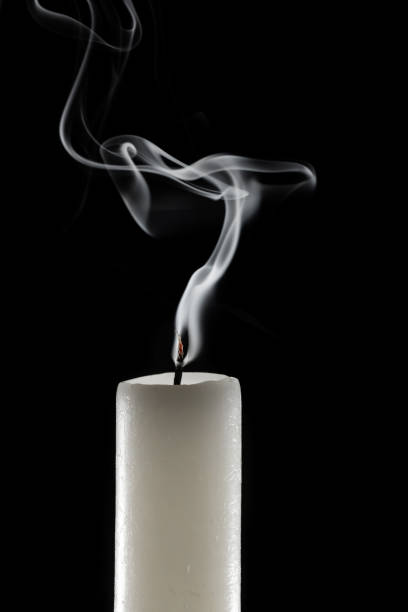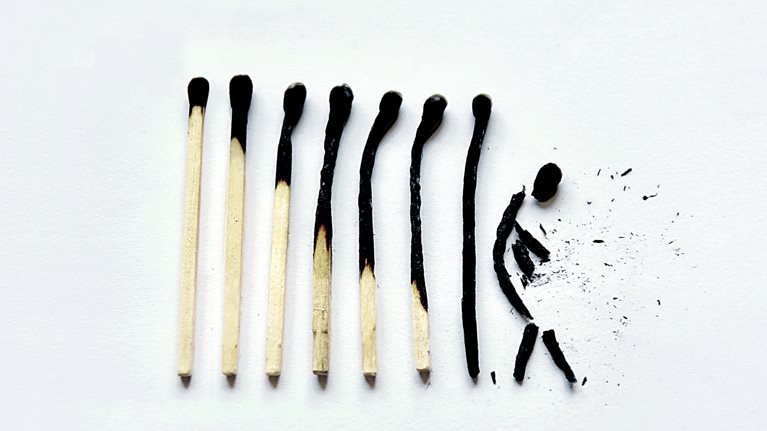Igniting the Spark


As summer break wraps up, and the school year properly begins to kick into gear, students are expected to get back into the “school mindset” as quickly as possible. As teachers begin to stack up assignments and the school weeks progress, so do quizzes and tests. Students, overwhelmed by the sudden surge of work and with little to no preparation time, find themselves speaking up about how utterly exhausted they already are.
And yet, at the beginning of the school year, they are usually faced with one response from adults:
“Well, you had the summer to recover, didn’t you?”
But is the summer enough? How much time does it take to actually recover from this fatigue? When students talk about exhaustion, is it just laziness, or a deeper problem? And how do you actually recover from burnout?

Burnout is a specific kind of exhaustion caused by overwhelm in a person’s life, caused by school, work, and an assortment of other factors that may cause stress. It isn’t just a mental exhaustion, either—it can also manifest physically or emotionally. It’s usually accompanied by a decrease in motivation as well, or not feeling “up to” doing tasks.
Burnout isn’t the same as just being a little fatigued. Not everyone who says they’re tired is burnt out, but it is something that every person can experience at one point or another. It takes time for burnout to build, and it can progress over time, too.
So, if anyone can get burnt out, and not everyone who is tired is burnt out, what does being burnt out actually look like?
The good news is that there’s a pretty decent list of what symptoms of burnout look like. However, even with a specific list, there’s no guarantee that any two people’s symptoms are going to look the same. Burnout can manifest in several different ways, including physical, mental, or a mixture of both. If you have some of the symptoms on the following list, but not others, it’s still worth it to look into burnout and any other possible mental health disorders, to eliminate every possibility (slideshow below, click through to see all the symptoms):
If you have any familiarity with mental health conditions (from your own or loved ones’ experiences, research, or even hearing about it in passing discussion), you may notice there’s something similar in all of these symptoms.
All of the symptoms of burnout present very similarly to symptoms of depression.
Despite this, the two are not exactly the same. For starters, burnout is not a diagnosable mental health disorder, while depression is. You can recognize the root of your symptoms as coming from burnout, but it can’t be treated with medication in the same way depression is. Furthermore, the root behind the two is different. Depression is oftentimes inexplicable—there is no one specific trigger that causes it every single time. In contrast, the cause of burnout can usually be traced to specific circumstances (which can include but is not limited to: being overworked, being overwhelmed by a variety of factors in your daily life, and a lack of control over your work or school life).
If you feel like you might be struggling from burnout, try to talk to an adult or mental health professional. You never know, you could think that you have burnout and then realize that you actually have depression. Additionally, if left untreated, burnout can also cause physical harm to the body. In extreme cases, people have ended up in the hospital from being so burnt out their bodies could not keep up. It’s extremely important to talk to a school counselor or another experienced adult, in order to eliminate any other cause, as well as to make sure there are no other underlying factors and that your burnout will not progress to an extreme.
So, once you’ve realized that you have burnout, what should you do? Do you brush it off and ignore it? Should you just tell yourself to stop stressing so much?
Neither of those things are good solutions. Ignoring the problem will only make it worse, and telling yourself to “just stop stressing” isn’t going to do anything except make you feel guilty when you inevitably do get stressed. Just as burnout takes time to grow, it takes time to get better. However, there are some ways to expedite that recovery. So without further ado, here are (click through the slideshow below):

It is important to remain consistent when it comes to healing from and preventing burnout in the future. Even when you start to recover, you shouldn’t cease your self-care. You should continue taking care of yourself; that’s the best way to get better and stay better.
Going hand-in-hand with burnout, if you need some advice on how to get back into the groove of things for this school year, check out Eliana Candebat’s article, In a Rut? Here’s how to get unstuck, here: “https://ssanews.org/4984/study/in-a-rut-heres-how-to-get-unstuck/.”
https://www.webmd.com/mental-health/burnout-symptoms-signs
https://www.mayoclinic.org/healthy-lifestyle/adult-health/in-depth/burnout/art-20046642
https://health.clevelandclinic.org/signs-of-burnout
https://neulinehealth.com/what-burnout-does-to-the-brain
https://www.ncbi.nlm.nih.gov/pmc/articles/PMC9478693/
https://hbr.org/2016/11/beating-burnout
https://www.npr.org/2021/03/08/974787023/burnout-isnt-just-exhaustion-heres-how-to-deal-with-it
https://health.clevelandclinic.org/how-to-recover-from-burnout
https://www.healthline.com/health/mental-health/burnout-recovery
https://www.medicalnewstoday.com/articles/recover-from-burnout
https://medium.com/calendar/how-long-does-it-take-to-heal-from-work-burnout-b9dda6305891
https://www.istockphoto.com/photo/wax-candle-with-burning-wick-and-smoke-isolated-on-a-black-background-gm1363235475-434880374
https://www.inc.com/lolly-daskal/12-surprisingly-effective-ways-to-get-organized.html
https://theconversation.com/cbt-dbt-psychodynamic-what-type-of-therapy-is-right-for-me-171101
SPOTLIGHT: Healthy Habits – Tips and Tricks from a Registered Dietitian
https://www.mckinsey.com/featured-insights/mckinsey-explainers/what-is-burnout
https://www.worldanvil.com/w/the-sagas-jester25/a/blue-flame-article
https://medium.com/learning-how-to-see/how-to-live-by-candlelight-537a5bbc488f

